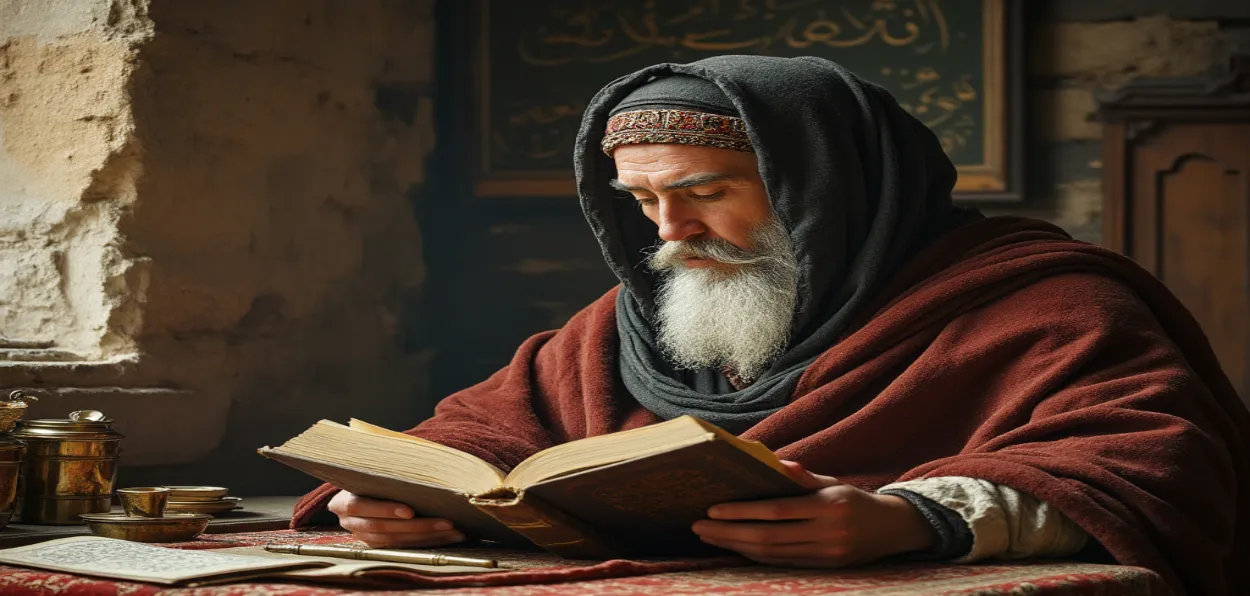
Eman Sakina
Teaching is one of the most respectful and valuable professions in the world. In Islam, this profession is all the more elevated status as our beloved Prophet Muhammad introduced himself as a teacher. Allah Almighty says in the Holy Quran: “Like (a favor which you have already received) in that We have sent among you a Messenger of your own, rehearsing to you Our verses, and purifying you, and instructing you in scripture and wisdom, and new knowledge” (Quran, 2: 151).
Friday Musings
According to this verse of the Quran, the Prophet was sent to teach about the Holy Book Quran, wisdom, and unknown things to the people of this world.
In Islam, the role of teachers is held in high esteem. They are seen as the custodians of knowledge and the guides who shape the moral, spiritual, and intellectual growth of individuals.
Teachers in Islam are regarded with profound respect and honor. The Prophet Muhammad is reported to have said, "I have been sent only as a teacher" (Ibn Majah). This underscores the noble position of teachers in Islamic society. The Quran also highlights the importance of knowledge, stating, "Are those who know equal to those who do not know?" (Quran 39:9). This verse implicitly acknowledges the elevated status of those who possess and impart knowledge.
Teachers are seen as the custodians of knowledge, which is considered a form of divine light in Islam. The Quran emphasizes the significance of learning and knowledge multiple times, making it clear that those who teach are spreading this divine light. The Prophet Muhammad also said, "The best among you are those who learn the Quran and teach it" (Bukhari). This Hadith highlights the immense reward for those who engage in teaching, particularly religious knowledge.
In Islamic tradition, teachers are also expected to be role models, embodying the virtues and morals they teach. Their influence extends beyond the classroom, as they guide students in their spiritual and moral development. The teacher’s character and conduct are crucial, as they are seen as living examples of the principles they impart to their students.
The Role of Teachers in Islam
Imparting Knowledge: The primary role of a teacher in Islam is to impart knowledge. This includes both religious and worldly knowledge. Prophet Muhammad emphasized the importance of seeking knowledge, saying, "Seeking knowledge is an obligation upon every Muslim" (Ibn Majah). Teachers are therefore responsible for fulfilling this obligation by providing education that encompasses all aspects of life.
Moral and Spiritual Guidance: Beyond academic instruction, teachers in Islam are expected to provide moral and spiritual guidance. They play a key role in nurturing the character and faith of their students, helping them to become good Muslims and responsible members of society. This holistic approach to education ensures that students are not only knowledgeable but also morally upright and spiritually aware.
Cultivating Critical Thinking and Wisdom: Islamic education encourages the cultivation of critical thinking and wisdom. Teachers are tasked with helping students understand the deeper meanings of the Quran and Hadith, and to apply Islamic principles in their daily lives. This involves fostering a sense of inquiry, encouraging students to ask questions, and guiding them in the pursuit of knowledge and understanding.
Promoting Justice and Social Responsibility: Teachers in Islam also have a responsibility to promote justice and social responsibility. Islamic teachings emphasize the importance of justice, and teachers are expected to instill this value in their students. This includes teaching them about the rights and responsibilities they have towards others and encouraging them to contribute positively to society.
ALSO READ: J&K Assembly Polls: Sikhs seek Muslims' support for election of 3 independents
The teacher is considered the profound father of the religion Islam. All Prophets were the teachers that were sent before Prophet Muhammad and obviously; he was also a great teacher for all mankind. Prophet Muhammad teaches us how to worship Allah, how to implement the teachings of the Quran in our daily lives, and many other things. Islam lays great emphasis on knowledge. At numerous times and instances, Allah Almighty ordered the Muslims to acquire knowledge and learn. Islam lays stress on seeking knowledge and also on giving the respect to the ones who imparted knowledge.
That’s why teachers have the highest status in Islam. In the Quran Allah says: “Allah elevates to high positions those from amongst you who are faithful and those who have acquired knowledge”.
(Quran, 58:11)
